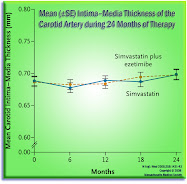We last mentioned this about three and half months ago. I was then hopeful the money could be found.
But between a series of major hurricanes hitting the island, and the ongoing pandemic -- I can easily understand how strained resources are, globally -- and for certain, feeding and sheltering children on the island should always come first. So I guess we bid farewell to a dear old friend:
. . .On Nov. 18, NASA was informed by the National Science Foundation (NSF) that, after careful assessment and consideration, they have decided to decommission the 305m radio telescope at the Arecibo Observatory in Puerto Rico, which recently sustained structural damage from failed cables. The planetary radar capability at Arecibo, funded by NASA’s Near-Earth Object (NEO) Observations Program, has served as one of two major planetary radar capabilities. It has allowed NASA to fully characterize the precise orbits, sizes, and shapes of some NEOs passing within radar range after they are discovered by wide-field optical telescope survey projects. . . .
For decades, the facility has been an important emblem of Puerto Rico’s commitment to international science research and education, and the discoveries enabled by Arecibo’s 305m radio telescope will continue to inspire the next generation of explorers. While the 305m radio telescope is being decommissioned, the Arecibo facility and its STEM education and other assets will continue.
While NASA was not directly involved in the investigation of what led to the observatory’s damage in August, the NSF communicated with stakeholders, including NASA, as their investigation proceeded. NASA respects the National Science Foundation’s decision to put the safety of those who work, visit, and study at the historic observatory above all else. . . .
Travel well. . . but do travel light -- do not let this unfortunate turn of events slow your search for the Infinite in all of us. . . indeed. And perhaps one day, at least possibly, we might -- with a much larger, gymbaling successor device, in China -- hear a signal. One that might suggest we are not alone in this Universe. I firmly believe we are not -- but as a scientist -- I'd like even just a small hint, of some proof of that idea. Be excellent to one another -- for at least for now -- we are all we know we have.
नमस्ते


















No comments:
Post a Comment